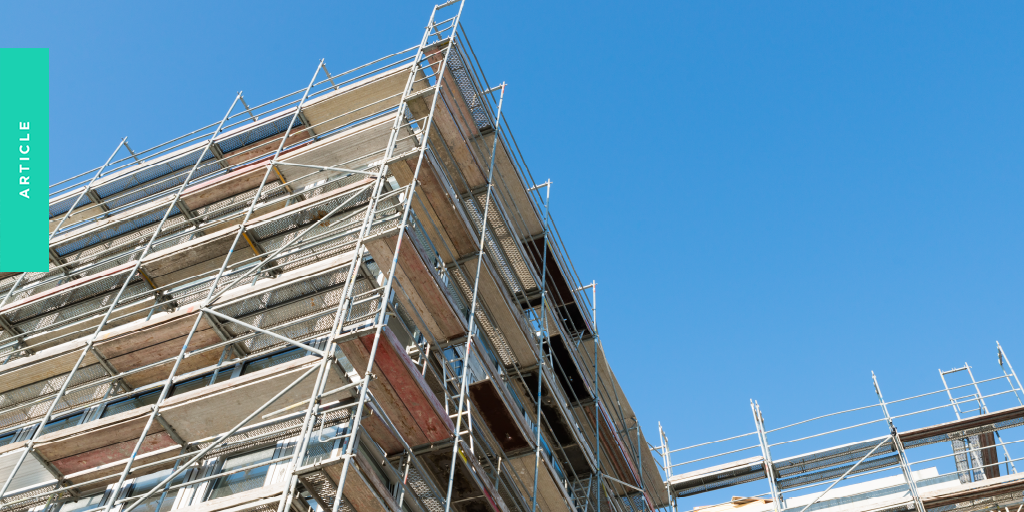NSW is looking to make latent defects insurance (LDI) compulsory for high-rise residential buildings by 2028. This transformative move has been described as a “game changer” by insurance law firm Wotton + Kearney.
Read on to find out more about latent defects insurance and the mooted changes in NSW.
The Building Compliance Crisis
Industry commentators argue building standards and quality slumped with the privatisation of building certification, although it’s true local governments also still certify. This was followed by a significant increase in high-rise developments.
Next, major structural issues cropped up in Sydney’s Opal Towers and Mascot Towers, and many others, particularly since 2018. When residents had to be evacuated due to safety concerns, it highlighted a lack of consumer protection.
Six Pillars of Reform
NSW’s response was to unfurl six pillars of reforms:
- Changes to laws and regulations
- A building ratings system
- Better training to boost skills and capabilities in the industry
- Better procurement methods to ensure contracts meet higher standards
- Digital transformation of the industry
- Making NSW a leader in modern construction methods through quality research
An NSW Building Commissioner was appointed in 2019 and has their own government department to oversee construction industry regulation. As well, registration rules are tighter, there are mandatory building inspections and design compliance declarations. Laws that followed included the Building Product Safety Act, Design and Building Practitioners Act and the Residential Apartments Building Act.
Introducing … Latent Defects Insurance (LDI) in NSW

NSW is the first Australian state to flag it will introduce a 10-year liability insurance, also known as LDI insurance. It makes sense because with Sydney’s population expected to soar to eight million by 2050, new residential development is expected to focus more on high-rise to accommodate this surge.
LDI is primarily for residential buildings, but also suitable for shops, carparks, and hospitals (class 2-9 inclusive under the National Construction Code).
The move to introduce LDI happened through the passing of the Building and Other Fair Trading Legislation Amendment Bill 2022 (NSW) in late 2022. It gives developers of class 2 builders the option to secure LDI instead of the current strata bond scheme to insure against serious defects in common property(ies) building elements. Often, LDI is more economical than the 2% strata bond.
The Australian Capital Territory is also looking to introduce a similar law.
How does LDI work?
Before construction starts, the developer will secure an LDI policy and link it to the building, not an entity or person. Only developers with a 3-gold star or higher score via the Independent Construction Industry Rating Tool (iCIRT) would be eligible.
An LDI policy would cover the decade after an occupation certificate is issued. It aims to cover building owners, and subsequent owners, to claim for latent building defects. That’s instead of the option of suing the building professionals responsible.
The policy covers major elements, such as structural (load bearing), and fire safety systems. Typically, LDI covers structural defects relating to the design, plan, specification, workmanship, or materials as well as waterproofing failure.
Here’s what could trigger a LDI policy:
- A defect in the building
- Physical damage
- The imminent threat of physical damage.
Under LDI insurance, insurers don’t need to understand who’s liable for causing a defect before they settle a claim. That avoids a long and costly court battle.
Exclusions to LDI include fire, storm, gradual deterioration, accidental damage, and corrosion. As well, equipment, non-structural works, fixtures, and fittings are not covered.
LDI does not mean a consumer can not sue, but having such a policy means your business is placing the litigation risk onto your insurer. The policy covers building repairs, and you can add coverage for accommodation expenses for building tenants/owners forced to evacuate if the building is unsafe or it’s being repaired.
Your next step
As a builder/developer, it’s timely to discuss LDI coverage before you start construction. We can help you comply with changing regulations.
Update your insurance with us. There are already a range of insurers offering LDI policies – let us guide you through their offerings to find the best one for your unique business.

